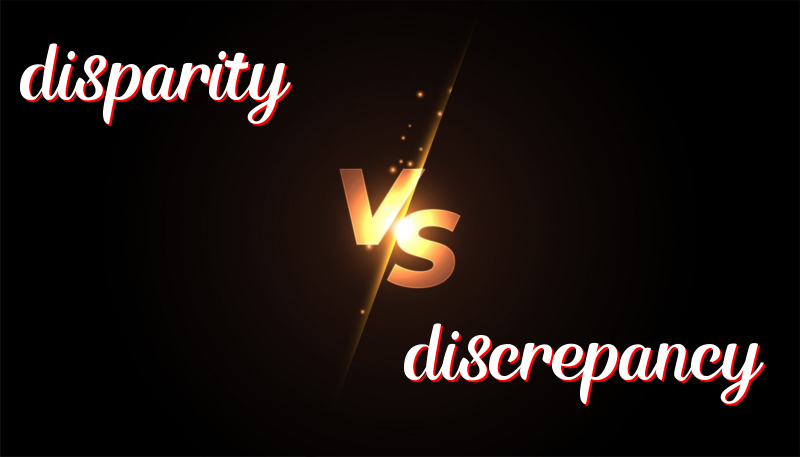Disparity vs. Discrepancy: Understanding Differences in Meaning and Usage
Understanding the Words: Disparity vs. Discrepancy
In English, we sometimes get confused with words that sound alike but have different meanings. Two such words are “disparity” and “discrepancy.” Let’s explore these words and learn how to use them correctly.
History of the Words
Disparity comes from the Latin word disparitas, which means “inequality.” It has been used in English since the late 16th century.
Discrepancy comes from the Latin word discrepantia, meaning “inconsistency.” This word entered English in the early 17th century.
How to Use Them
Disparity is about a lack of equality between two or more things. It often talks about differences in amount, quality, or condition.
Discrepancy is about a difference or inconsistency, especially when something does not match or agree with something else.
Trick to Remember the Difference
Think of disparity as a type of “gap” or “distance” between things, like the “differences” in wealth or size. For discrepancy, imagine a “disagreement” or “mistake” in accounts or records.
Example Sentences
Using “Disparity”
- There is a large disparity between the rich and the poor in many countries.
- The disparity in test scores surprised the teacher.
- We noticed a disparity in the number of boys and girls in the class.
- The report highlighted the disparity between urban and rural healthcare.
- Efforts are being made to reduce the disparity in opportunities for students.
Using “Discrepancy”
- There was a discrepancy between the two reports.
- The accountant found a discrepancy in the financial statement.
- The discrepancy in the schedule caused confusion.
- The team tried to explain the discrepancy in their findings.
- The manager asked about the discrepancy in the sales numbers.
Summary
In short, use disparity when you are speaking about a difference in level or amount between things, like wealth or resources. Use discrepancy when you find an inconsistency or mismatch between facts or records. Remember these tricks, and you’ll be able to use these words correctly!

Leave a Reply
You must be logged in to post a comment.